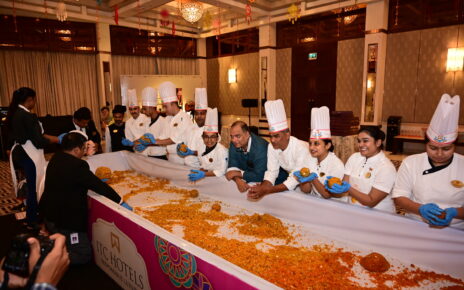Describing Bodh Gaya as the “land of enlightenment”, Prime Minister Narendra Modi today said his government would develop the site as the spiritual capital for it to serve as a civilisational bond between India and the Buddhist world.
“I recognise how Buddhists all over the world revere Bodh Gaya as a place of pilgrimage. We in India would like to develop Bodh Gaya so that it can become the spiritual capital and civilisational bond between India and the Buddhist world.
“The government of India would like to provide all possible support that its Buddhist cousin nations need for the satisfaction of their spiritual needs from this holiest of holy places for them,” he said after visiting Mahabodhi Temple.
Describing Buddha as a “crown jewel” of India, which accepts all ways of worship, he said he revered Buddha as a reformer of not only Hinduism but also the world, who gave a new world view and vision which is critical for survival of all.
“This quality of Hinduism in India was a product of many great spiritual masters and chief among them was Buddha. And this is what sustains the secular character of India,” he said, adding that the enlightenment which Buddha attained in Bodh Gaya also lit the light of enlightenment in Hinduism.
He said he as Prime Minister felt good to visit the holy place after Jawaharlal Nehru and Atal Bihari Vajpayee, noting that it was special to be here on Janmashtami, the birthday of Lord Krishna.
He said both Gautama Buddha and Lord Krishna taught the world so much, as Krishna gave his message before the start of the great war in Mahabharata and Buddha repeatedly emphasized on rising above warfare.
“The message by both of them was about establishing Dharma,” he said, adding that both of them gave great prominence to principles and processes.
“Gautama Buddha gave the eight-fold path and the Panchsheel, while Shri Krishna gave invaluable lessons of life in the form of Karma Yoga. These two divine souls had the strength to bring people together, rising above differences.
Their teachings are most practical, eternal and are more relevant in this day and age than ever before,” he said.





